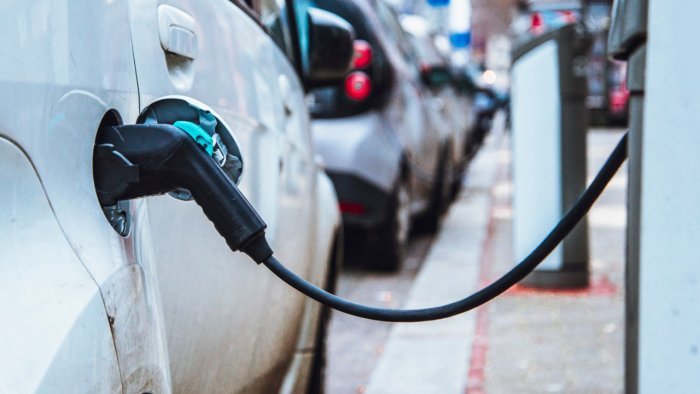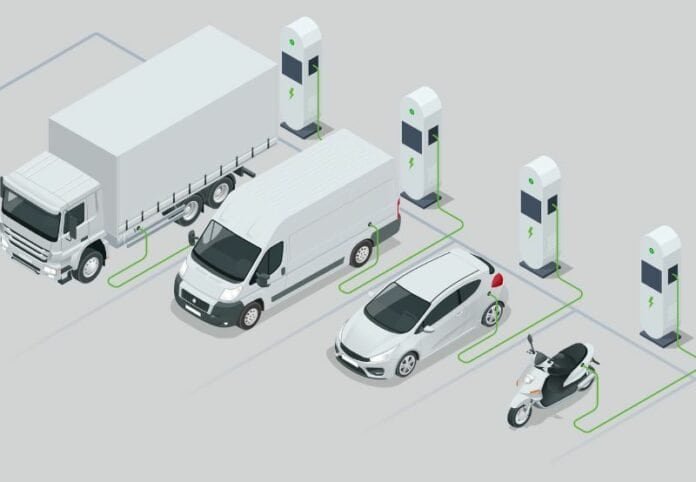There is an urgent need to boost efforts and advance the electric mobility revolution to the next level of growth, expansion, and acceptance levels given that India is experiencing exponential growth on the electric vehicle front.
Everyone has been shocked by the extraordinary uptake of electric cars (EVs) in the Indian automotive industry. The finest thing about the nation’s recent advancements in the adoption of electric vehicles is its democratic nature across vehicle segments, product categories, and body types.
From electric bikes, rickshaws, and cars to buses, LCVs, and HCVs, the demand for EVs has increased significantly among both business and private buyers. The category of EVs is anticipated to increase at a 90% CAGR to reach $150Bn by the end of 2030, up from just 1.3% of total sales in 2020–21. While there were numerous variables that contributed to the exceptional rise of EVs, the following steps are particularly important for driving that growth in the Indian market:
Contents
Holistic Policy Framework:
India’s policy framework for building an ecosystem that is self-sustaining for EVs across the nation is showing promise. In contrast to quick fixes, the government has chosen a long-term strategy to promote the use of EVs in the nation.
In order to help the industry stand on its own two feet without the crutches of any outside support, the Indian government initially offered benefits under the Production-Linked Incentive (PLI) scheme and faster adoption and manufacturing of hybrid and electric vehicles (FMAE-II). However, these subsidies are now gradually being removed.
In order to build a self-sustaining ecosystem for EVs in the nation and support participating stakeholders as they innovate, develop, and broaden their functional skills and operational competencies, this withdrawal is essential.

Increasing Sensitivity:
Indians are becoming more environmentally conscious, leading them to prefer EVs to traditional cars. The fact of climate change is quickly becoming apparent as we live in a rapidly changing environment. By providing the cleanest form of transportation, EVs can lessen greenhouse gas emissions, protect the environment, and lessen the risks of floods, heat waves, and other climate change-related calamities.
Indian consumers are becoming more and more aware of the effects of climate change, which is driving the adoption of electric vehicles (EVs) in the nation. It makes sense that, thanks to growing consumer awareness of environmental issues like climate change, the adoption of EVs in India will increase at a CAGR of 44.5% between 2020 and 2025.
Modern technologies of the electric vehicle industry:
The electric vehicles (EVs) of today are quite different from the electric vehicles of the past since technology has advanced significantly in every significant area. Modern EVs have cutting-edge safety features, larger batteries, more powerful motors, and increased ranges in addition to futuristic exteriors and interiors. The extremely low operating and maintenance expenses further strengthen their allure, aiding in the astonishing rise in EV sales in India.
Players from abroad:
The fervent interest of manufacturers from international markets is also fueling India’s EV sector’s growth story. Foreign-born businesses are vying with their Indian counterparts for a piece of the Indian EV market, creating new prospects for EV producers. The growth story of EVs in India is being complemented by this healthy competition, which is driving innovations, advancing technology, and providing a wide range of options to potential customers.
Despite the EV industry’s enviable growth, there are a few major issues that India’s electric mobility ecosystem stakeholders must address right away. The absence of battery recycling facilities, excessive retail costs, inadequate service support, and a lack of charging infrastructure are the main problems. A prompt resolution to each of these problems will help India become the world leader in electric transportation while also maintaining the momentum of EV adoption.


